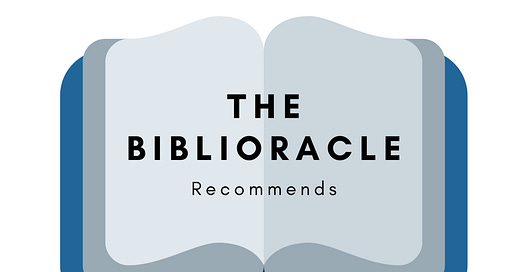In this week’s column, I was pleased to be able to sneak in an appreciation of recently departed Chicago Tribune architecture critic Blair Kamin. I think most of you here have found me through the Tribune, and are therefore hopefully familiar with Kamin’s work from 1992 to just a few weeks ago, but for those unfamiliar, Kamin represented the best of what criticism can do, enhance the public appreciation of the object of criticism while being a work of art itself. Reading Kamin literally allowed for an enhanced view of the architecture of the city of Chicago. It’s as though he was able to lend you Blair Kamin glasses, so you were suddenly viewing the landscape through his eyes.
Kamin won the Pulitzer Prize in 1999 for a series he’d done the previous year on how Chicago’s Lakefront did not afford equal access to the benefits of its parks. Predominantly white neighborhoods were significantly advantaged over predominantly black and hispanic neighborhoods. The series was so rich in insight the Pulitzer board waffled on if it belonged in criticism or investigative reporting. Kamin won for criticism. The series resulted in Mayor Richard M. Daley addressing some of the inequities as the lakefront was transformed in subsequent years.
I have no special affinity for architecture - though the Chicago river architectural boat tour is one of my go-to recommendations for visitors to the city - but I religiously read Kamin because he was going to be interesting and insightful no matter what.
That’s a good critic.
Kamin is just one of numerous casualties of the decline in American newspapers like the Tribune. He did not retire. He was “bought out,” a move from newspaper management (a venture capital outfit) to cut costs by moving relatively higher paid, longstanding employees out the door. The paper is a diminished place today for the loss of Kamin and many others.
(I am a freelancer, not a Tribune employee, so I will never be eligible for a buyout, but one of the reasons I started this newsletter is to have a lifeboat in the case that the budget line item that pays for my contributions disappears.)
Fortunately, we have two collections of Kamin’s columns available in book form, Why Architecture Matters: Lessons from Chicago (2003) and Terror and Wonder: Architecture in a Tumultuous Age (2010). I have to think a third volume, covering the final phase of Kamin’s career at the paper is in the offing.
In the column I also try to figure out what I am, since I definitely don’t have the talent or knowledge to be a critic. You’ll have to read it to find out what that is.
On to this week’s bonus recommendations.
—
Instructions to request a reading recommendation. I’m actually starting to see the bottom of the list of requests for recommendations, so if you’ve been hesitant, fire away!
Links to the recommended books take you to The Biblioracle Recommends bookshop at Bookshop.org. Affiliate income for purchases through the bookshop goes to Open Books in Chicago. After my plaintive plea last week, we’ve seen our first referral income since the start of the Substack. Thank you very much!
If you know anybody who might like to get once or twice weekly book recommendations, hit that share button early and often, like voting Chicago-style.
—
Sometimes, when I’m trying to find the right book for a reader, I’ll wander my house going from shelf to shelf, stack to stack, waiting for inspiration to strike. There are books in every room of the house, of course. Just for fun, this week, I’m confining my recommendations to a single bookshelf in our guest bedroom. It was built by my grandfather, and primarily holds paperbacks, including a high concentration of books I read during graduate school.
Let’s see how we do with books from Grandpa’s shelf.
1. “Notes from The Underground and Other Short Stories” by Feodor Dostoevsky
2. “Moonflower Murders” by Anthony Horowitz
3. “Hall of Mirrors” by Christopher Fowler
4. “The Secret Keeper” by Kate Morton
5. “Anxious People” by Fredrick Backman
Rena G. - Aurora, IL
This book isn’t uplifting, but Rena’s list suggests to me she doesn’t mind as long as the story delivers a satisfying emotional jolt, Revolutionary Road by Richard Yates.
1. “A Visit from the Goon Squad” by Jennifer Egan
2. “Summer House with Swimming Pool” by Herman Koch
3. “Fated” by S.G. Brown
4. “Stone Garden” by Molly Moynahan
5. “The Tsar of Love and Techno” by Anthony Marra
Will T. - Chicago, IL
The toughest part of this one is narrowing down the choices because Grandpa’s bookshelf is well aligned with Will’s recent choices. I’m going with Blue Angel by Francine Prose.
1. “A Covenant with Death” by by Stephen Becker
2. “The Last Great Road Bum” by Hector Tobar
3. “Man's Search for Meaning” by Victor Frankl
4.” The Wax Pack: On the Open Road in Search of Baseball's Afterlife” by Brad Balukjian
5. “Animal Farm” by George Orwell
Sean G. - Highwood, IL
It seems appropriate to recommend a book by one of our great critics to finish off this week. Paul Fussell had a long and varied career, including as the author of the book which unlocked an appreciation of poetry for yours truly, Poetic Meter and Poetic Form, which appears to be sadly out of print. My copy had bite marks from my puppy at the time. My recommendation for Sean is Fussell’s exploration of the experience and literature of Word War II, a war in which he fought, The Great War and Modern Memory.



